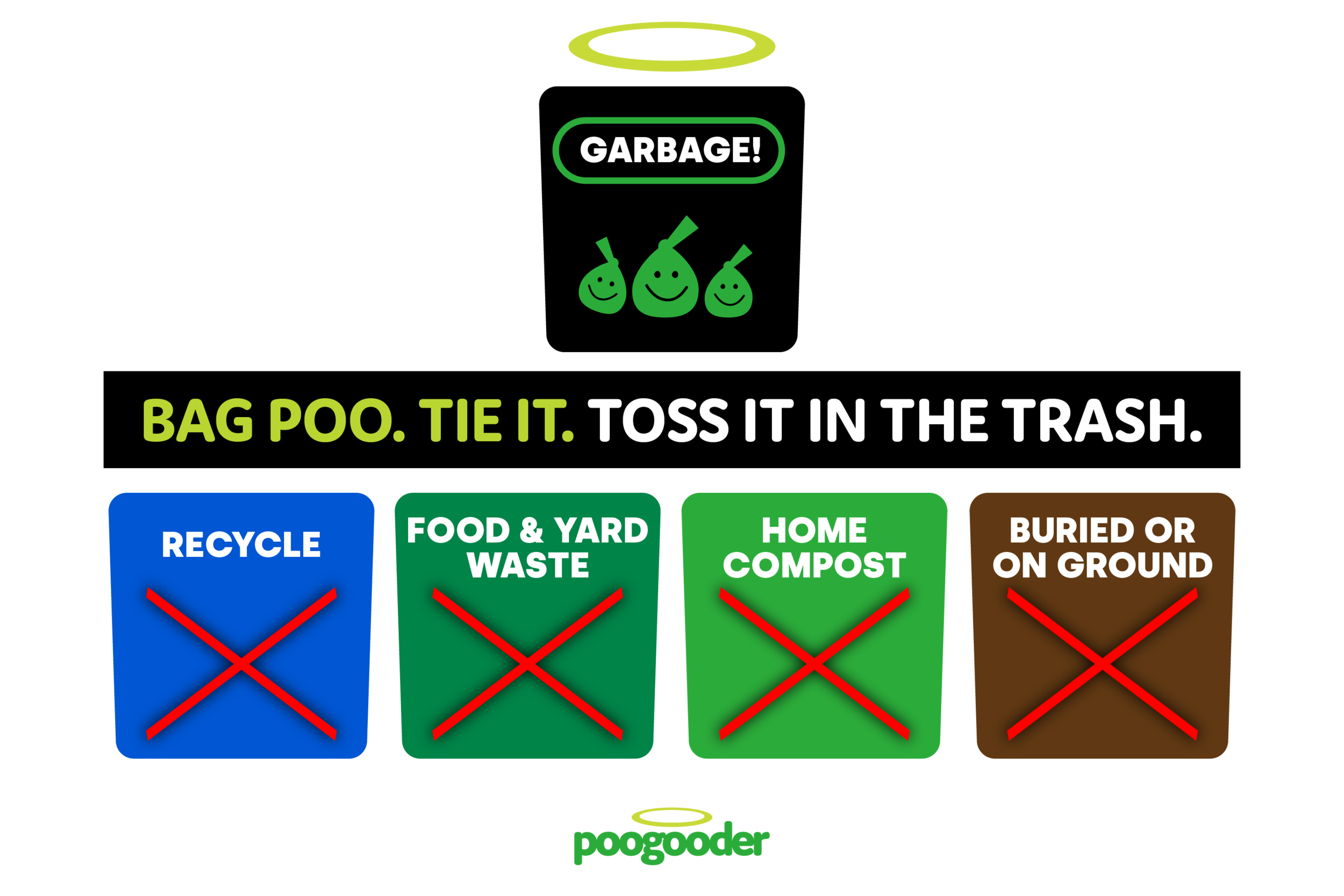Dog Poo 101
Here’s your guide to the best pickup lines, key takeaways, and solid answers when the conversation turns to dog poo in Seattle.
Where should dog poo go?
PUT DOG POO IN ITS PROPER PLACE: ALWAYS & ONLY IN GARBAGE.
The stinky truth: The landfill is the safest place for dog poo to go, for now. Why? Landfills are designed to prevent harmful dog poo contaminants from leeching into the soil and water, and Seattle compost facilities are not currently equipped to process dog poo. But we’re working to change that! In the meantime, please help keep Seattle clean and healthy by spreading the word and squashing confusion.
NEVER soil Food & Yard Waste bins or compost with dog poo.
Even if you use a biodegradable or compostable bag, DOG POO IS NOT COMPOSTABLE. Why? Seattle Food & Yard Waste compost facilities can’t safely compost dog poo because it requires a higher heat process to kill pathogens. Dog poo actually contaminates it. Help keep Seattle green by keeping dog poo out of the green bins.
ALWAYS get permission before tossing dog poo bags in others’ garbage cans.
Some people don’t mind if you pop a tied dog poo bag in their garbage can, but 1/3 of polled residents said it makes them VERY UPSET. Why? It creates a big stink, literally. Help create a happier community by honoring that it’s NOT OK unless they say it’s OK.
STOP spreading dog poo. It is NOT good fertilizer.
Dog poo is bad for grass, fish, kids, and pets. Why? It’s too acidic for your yard, it kills aquatic life when it washes into waterways, and it releases parasites and bacteria into the soil that make kids and pets sick. Help keep your neighborhood healthy by keeping dog poo off the ground and in the garbage.
REMEMBER to carry your dog poo with you after you bag it.
Thank you for bagging your dog poo, but please don’t leave presents on the ground for others. Plastic pollution in our waterways and environment is bi-product of dog waste disposal, so please make sure the poo you bag up is properly disposed of in a poo-friendly garbage container, not your neighbor’s front yard or Puget Sound.
Who can help end wayward dog poo?
There are many reasons why wayward dog poo persists, but it doesn’t have to be this way. Every small action can lead to big impacts and create change for good.
Need a conversation starter? Oh Poo! A Cautionary Tale picture book now available
When a boy who loves his dog but hates picking up dog poo takes a shortcut across the grass on the way to school, he learns that everyone has a poo story and it’s up to him to break the mighty poo curse. Based on a collection of true dog poo stories, this funny rhyming picture book reminds readers of all ages that we’re all in this together, and one small action can have a big impact, even when nobody sees it. Available in paperback and hardcover.
Contact Lori Kothe to buy author-signed copies
(Seattle-Tacoma area delivery only)
Community Education & Action Resources



